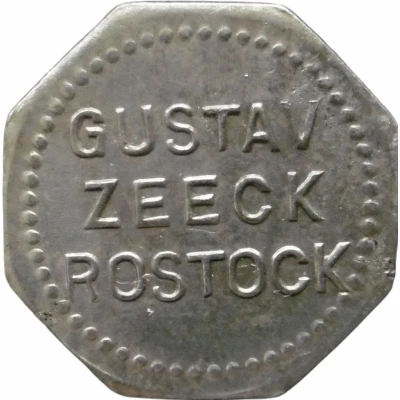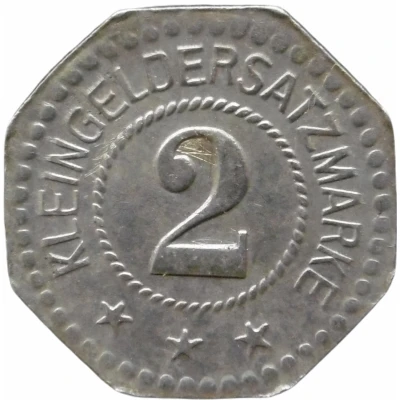


© Willem63 (CC BY-NC-SA)
2 Pfennigs - Rostock (Gustav Zeeck) ND
| Iron | 2.0 g | 18.2 mm |
| Issuer | City of Rostock (notgeld) (Federal state of Mecklenburg-Schwerin) |
|---|---|
| Type | Standard circulation coin |
| Value | 2 Pfennigs (2 Pfennige) (0.02) |
| Currency | Mark (1914-1924) |
| Composition | Iron |
| Weight | 2.0 g |
| Diameter | 18.2 mm |
| Thickness | 1.1 mm |
| Shape | Octagonal (8-sided) |
| Technique | Milled |
| Orientation | Medal alignment ↑↑ |
| Demonetized | Yes |
| Updated | 2024-10-04 |
| Numista | N#294469 |
|---|---|
| Rarity index | 97% |
Reverse
Pearl rim, legend surrounding beaded circle with denomination centered
Script: Latin
Lettering:
KLEINGELDERSATZMARKE
2
★ ★ ★
Edge
Plain
Comment
Menzel: BBBFa: Manufakturwarenhandlung
Interesting fact
One interesting fact about this coin is that it was issued during a time of economic turmoil in Germany, specifically during the hyperinflation period of the 1920s. The coin was made of iron, which was a cheaper alternative to traditional metals like copper or silver, and it had a low denomination of 2 Pfennigs, which was a fraction of the value of a standard German mark. This coin is a unique example of how the value of money can fluctuate over time and how governments can use alternative materials to create currency during times of economic hardship.